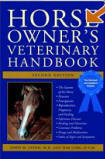|
Equine Kingdom Riding Academy
is no longer in operation. These more than 2,000 unique pages are provided for historical and educational reference. |
||
|
|
||
|
|
Accounting Differences and Their Impact on International Practices |
|
Although accounting standards and practices are the same across the board in their origin, the accounting and taxation structures of different countries around the world makes them vary between countries. Different countries apply different accounting practices. This accounting diversity is the reason that one company may seem profitable while another seems to be operating at a loss, in extreme cases. The disparity between global accounting practices can lead to poor business decision-making, difficulties in raising capital in different or foreign markets, and difficulty in monitoring competitive factors across firms, industries, and nations. Their accounting practices are linked to the objectives of the parties who will use the financial information, including people like investors, lenders, and governments. While the IASC, the International Accounting Standards Committee, is trying to make a single set of high-quality, understandable, enforceable accounting standards worldwide, the USA is resisting, insisting that no standards are as good as ours. We use the GAAP, or the Generally Accepted Accounting Principles. However, through the whole Enron thing, the US standards dropped and support of the international standards was given an unexpected boost. Through the international standards and practices, Enron's accounting mistakes would have been caught long before the destruction of the whole company. A difference in accounting principles between countries, for example, would include one such as that capitalization of R&D costs are allowed in Japan, the United Kingdom, France, the Netherlands, Switzerland, Canada, and Brazil, but not in Germany or the United States. Similarly, book and tax timing differences being recorded on the balance sheet as deferred taxes is required in the United States and the Netherlands, but merely allowed in some cases in the other countries. These accounting differences could really cause conflict between countries because of international transactions and stuff. There are substantial questions of competitive advantages and informational deficiencies that may result from these continuing differences across countries, and the differences from the accounting practices from across different countries are very real and persistent. Some of the differences between countries include fixed asset revaluations stated at an amount in excess of the cost, inventory valuation using LIFO, finance leases capitalized, pension expense accrued during period of service, current rate method of currency translation, pooling method used for mergers, and an equity method used for 20-50% ownership. The way of accounting between many countries are very different, especially in what is and is not allowed. The differences in accounting principles between countries could really cause inconsistencies between international operations. Maybe if an international standard were set for all countries, there would be less quarreling and more agreement in accounting between countries. That way there would be less discrepancy in the accounting principles and the balance sheets for each country. |




